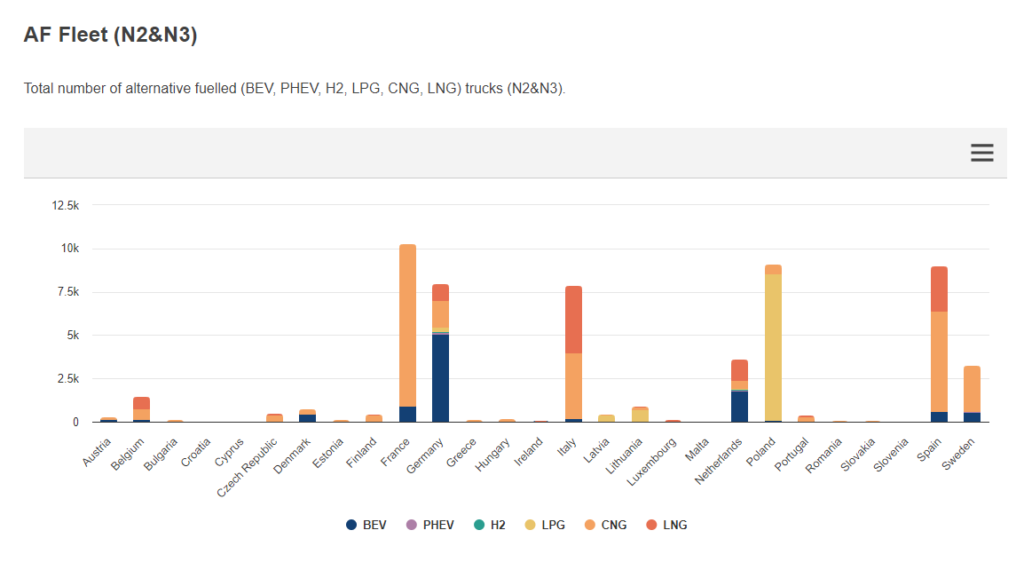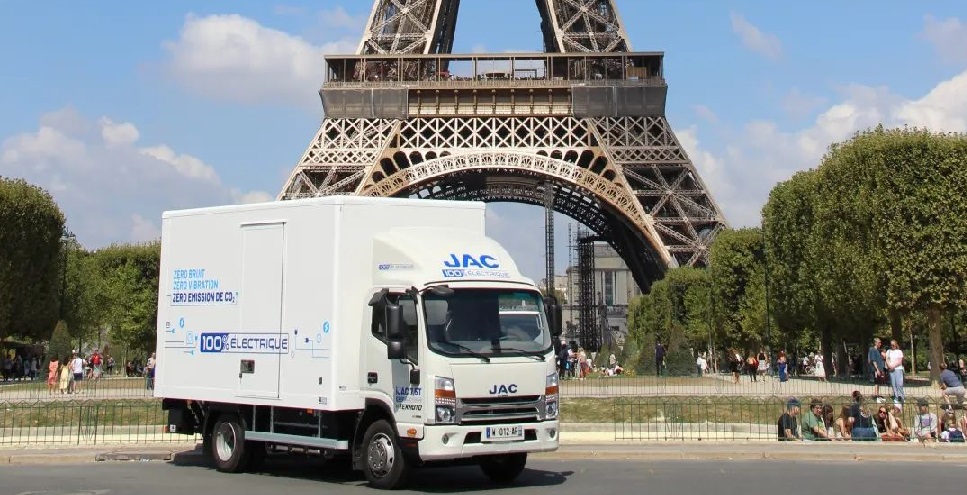In recent years, France has made significant strides towards adopting sustainable technologies in the transportation sector, with one of the most notable advancements being the growing presence of electric trucks on its highways.
Indeed, it ranks as the third country in the European Union (EU) with the highest number of registered eTrucks, with 904 units out of a total of 10,399, according to the European Alternative Fuels Observatory (EAFO).
While this may not seem significant compared to its higher numbers in electric cars (1,191,711 zero-emission vehicles), it’s important to note that the electrification of heavy-duty transport is a relatively recent phenomenon in Europe, with the lack of charging infrastructure being one of the main challenges facing the sector.

Leading France is Germany, significantly advanced with a fleet of 5,053 units.
Germany, for instance, launched the fast charging network for electric trucks on federal highways, led by Federal Minister Volker Wissing and Minister of Economic Affairs and Climate Protection Robert Habeck, in collaboration with network operators and the BDEW association.
The government’s Master Plan for Charging Infrastructure II includes the construction of this fast-charging network, crucial for decarbonizing heavy duty transport.
Following closely are the Netherlands with with 1,796 registered units.
In the Netherlands region there’s an incentive for purchasing emission-free trucks (AanZET), targeting entrepreneurs and nonprofit organizations.
This incentive applies to those looking to buy or lease a new, completely emission-free truck, according to the Netherlands Enterprise Agency (NEA).
With a total budget of 45 million euros allocated, subsidies range from 7,500 to 115,000 euros for each company, depending on the type and weight of the vehicle, as well as whether the applicant is a large or small business.
So, what can France do to boost its numbers?
Recently, the Agency for Ecological Transition (ADEME) launched a program aimed at accelerating the adoption of eTrucks in the country.
This initiative involves a call for projects to fund heavy-duty vehicles, part of the energy-saving certificates program (E-TRANS), with a budget of 110 million euros, 95 million of which is dedicated to heavy goods transport vehicles.
“This ADEME program is a crucial step towards promoting the adoption of electric trucks in France,” says Jean Dupont, a sustainable transport expert.
“However, it’s also essential for the government and private sector to collaborate in developing a robust and accessible charging infrastructure nationwide,” he adds.
As France moves towards a more sustainable future, the electrification of heavy-duty transport presents both challenges and opportunities.
Technological innovations, such as improvements in battery autonomy and fast charging efficiency, will be key to making electric trucks a viable option for more businesses.
Moreover, the transition to eTrucks is expected to stimulate job creation in manufacturing and maintaining these vehicles, as well as in building charging infrastructure.








